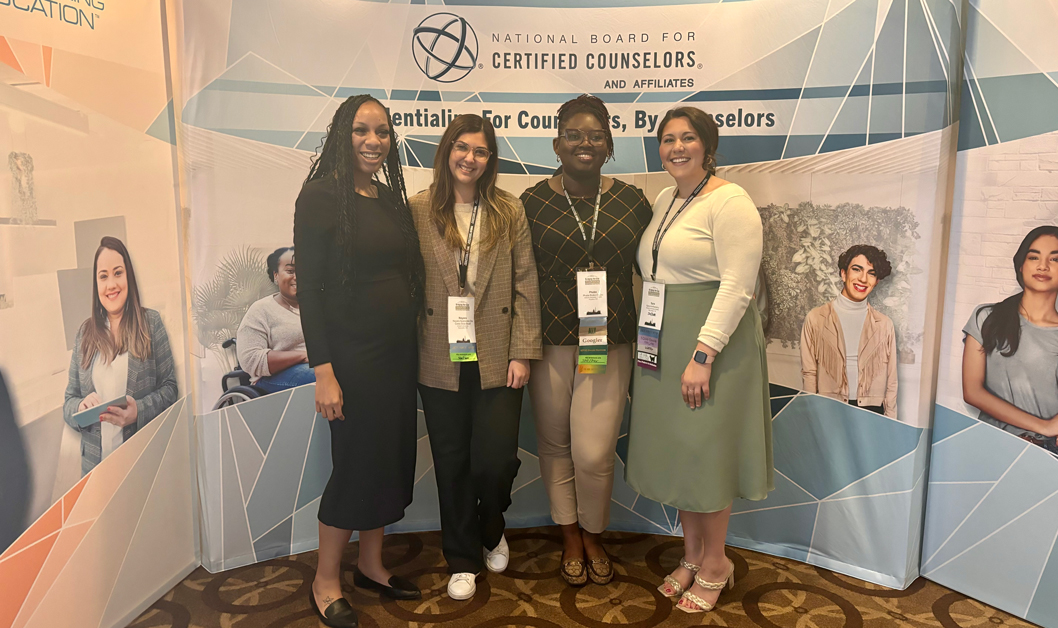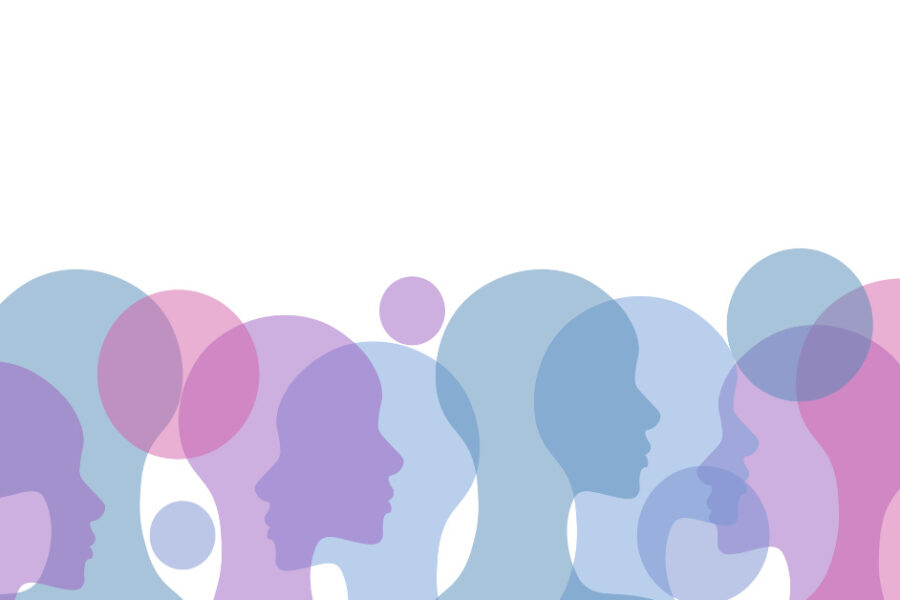Each year, the Minority Fellowship Program awards $20,000 fellowships to roughly 40 doctoral and graduate students from around the country with the aim of increasing diversity in the counseling practice. This year, three of those fellowships went to students from the PhD in Counselor Education and Supervision based out of Antioch University’s Seattle campus. Says Stephanie Thorson-Olesen, who serves as Core Faculty in that program, “We were thrilled to learn that three of our doctoral CES students were selected for this incredibly competitive program this year.”
The three student awardees, Naya Da Costa Silva Beall, Phebe Brako-Owusu, and Sara Al-Khedairy, are each exceptional counselors with much promise as leaders in the field of counseling. These fellowships, awarded by the NBCC Foundation, will support their work practicing counseling in underserved communities, lecturing on topics in the profession, and developing new counseling initiatives.
Phebe Brako-Owusu: Sharing Resources Back With Ghana
An immigrant of Ghana, Brako-Owusu specializes in identity amongst immigrants and descendants of immigrants. She approaches her sessions with the understanding that the practice of therapy was not designed for people of color, and because of that, she emphasizes cultural interpretations of the things her clients carry into each session. Being in a different country she has the understanding that being far from home is an adjustment her clients are having to make as well. Her work has reached her homeland of Ghana as a goal of hers has been normalizing therapy into that of Ghanaian lives.
Brako-Owusu says Antioch gave her the creativity to explore her own diversity. “I was able to get creative in the ways in which I serve and advocate for my people.” Brako-Owusu did an internship where she could share her videos and the techniques she was learning on YouTube in her native language, Twi (Akan). Since her posts in early 2023, people from home have reached out, wanting more of her videos.
Naya Da Costa Silva Beall: Increasing Representation
Beall echoes this sentiment. She says, “As a Brazilian immigrant, I am thrilled about the chance to connect with other counselors holding marginalized identities and enhance representation in our field through this fellowship.” In her work and scholarship, Beall strives to improve mental health and the discussion surrounding it—and this fellowship is helping her undertake this work. “It offers a valuable support for my doctoral journey,” she explains, “enabling me to pursue my research agenda, connect with mentors, disseminate knowledge, and further contribute to increased representation in our field.”
Sara Al-Khedairy: Making Counseling More Inclusive
Al-Khedairy is a child of Lebanese and Iraqi immigrants who identifies as queer and polyamorous. She is also neuro-divergent, and she strives to use her own lived experiences to clinically support those who hold similar identities.
“My goal as a therapist is to co-construct meaning with clients as we consider the internalized narratives that may keep us stuck,” explains Al-Khedairy. Much like her classmates, she works through the lens of social justice and anti-racism as she has a clear understanding that outdated social norms can be a hurdle for her clients when obtaining help.
The funds she is receiving will help her make strides in her professional development, she explains, as they will allow her to “attend professional conferences, pursue training opportunities, and get my clinical certification to continue my work with consensually non-monogamous and polyamorous clients.” This work making counseling more inclusive is a key part of her professional path. As she explains, “I’m so grateful for this opportunity and how it will set me up professionally as I continue in the counseling field.”
A Recognition of Excellence
“We have such talented students and are so proud of their accomplishments,” Stephanie Thorson-Olesen. She continues, “As a department, we are always seeking opportunities for our CES Community, especially those that align with our mission and vision.”
Brako-Owusu sees the ways that these fellowships highlight the diversity of the PhD in Counselor Education and Supervision. Though the three students circle the realm of immigration, it is not their only identity, “We’re not a monolith,” says Brako-Owusu. “We all have our focuses and what we want to accomplish as licensed therapists.”These three students, along with their peers in the program, strive for diversity in not only the marginalized groups they’re part of but for anyone who feels out of place. In their approaches they manage to take an individualized approach to treat each client without bias and stereotypes.
The faculty in the program have inspired these students to approach their work with a social justice lens. With their mentors’ support they were given the tools to not only maintain their studies and off campus work, but put in the time to apply and win this fellowship. “I would say I had a very solid support network at Antioch,” says Brako-Owusu.
Brako-Owusu, Al-Khedairy, and Beall all point to how helpful Thorson-Olesen was in applying for fellowships in particular. Beall says that she “has been wonderful and very intentional about supporting students to achieve their goals.” Brako-Owusu echoes this sentiment, saying, “She was great, was really helpful and really supported us with everything we did.”
Al-Khedairy reflects on what this fellowship means for her saying, “Receiving this fellowship, along with the related support and encouragement of my Antioch faculty and peers, has made such a meaningful difference in my professional development.”
For Thorson-Olesen and her colleagues in the PhD in Counselor Education and Supervision, it’s exciting to see what these women are already accomplishing—and to consider what their contributions may be once they graduate. All three of them work clinically, though Brako-Owusu will be taking time off in the near future to work on her dissertation. But for all of these students, as for Angela Banks, an Antiochian who won one of these fellowships last year, the opportunity to be supported in their work and encouraged to continue making the field of counseling stronger and more diverse will continue making a difference for years to come.



